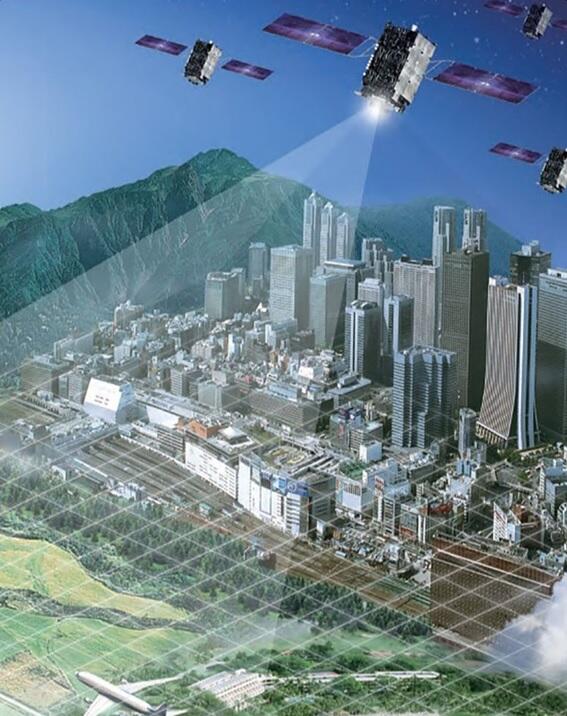Japan will expand its quasi-zenith satellite network, which serves as the country's own global positioning system, from the current four satellites to 11, with the aim of providing a more reliable service in areas where signals are blocked by buildings or trees, according to a government plan.
The system will operate with seven Michibiki satellites by fiscal 2026, enabling precise global positioning system services without relying on foreign systems. The development of an additional four satellites for backup will begin in fiscal 2025, the Cabinet Office's plan shows.

Photo courtesy of the Cabinet Office, Kyodo News
The satellite network, which orbits almost directly over Japan for around eight hours a day, is used by Japan to supplement GPS signals from the United States.
However, concerns have arisen that if GPS access is restricted by the United States for some reason, it could lead to social disruption as the accuracy of positioning data for smartphones and navigation systems declines.
Michibiki has operated with four satellites since 2018, with one satellite guaranteed to be over Japan.
A fifth satellite will be launched by March next year and an additional two in fiscal 2025, forming a seven-satellite system. There will eventually be 11 satellites by the late 2030s, ensuring that the system will still function even if some satellites fail.
The government will also engage in the development of new satellites to replace their aging predecessors already in orbit, with each expected to cost several tens of billions of yen.
Michibiki's signals are widely used for driving, drones, agriculture, and maritime navigation. The system reduces positioning errors to just a few centimeters, enabling distinctions between nearby individuals and vehicles.
But as receivers compatible with Michibiki's signals are crucial to make full use of its capabilities, the development of more portable and accessible receivers will become equally as important as increasing the number of satellites.




